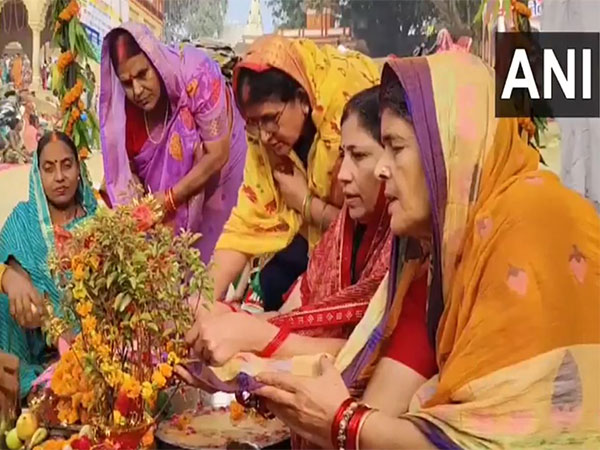Devotees Celebrate Tulsi Vivah: A Sacred Union and Auspicious Beginning
Devotees gathered at Balua Ghat, Prayagraj, for Tulsi Vivah, marking Lord Vishnu's ceremonial marriage to Vrinda through Shaligram and Tulsi. Rituals include fasting, prayers, and holy dips in rivers. Tulsi Vivah signifies the end of Lord Vishnu's slumber and heralds the Hindu wedding season.

- Country:
- India
In Prayagraj, fervent devotees observed fasts and participated in puja rituals at Balua Ghat to commemorate the symbolic marriage of Lord Vishnu and Vrinda through the figures of 'Shaligram and Tulsi.' This celebration, commonly known as 'Tulsi Vivah,' typically occurs in October or November, drawing multitudes of worshipers.
According to Raj Rani Jaiswal, a devotee, 'Today is Dev Uthani Ekadashi, the day Lord Vishnu awakens. Worshippers fast, perform prayers, and partake in rituals. We gathered at Balua Ghat for a sacred dip, followed by hymns and worship honoring Tulsi Mata.' Devotees flocked to the Yamuna River for holy baths, underscoring the day's significance.
In notable ceremonies, the Balua Ghat was filled with chanting and pujas, as priests led ritualistic prayers starting with sacred Vedic mantras. The revered Tulsi plant and Lord Vishnu's idol are symbolically connected, affirming their divine bond. Similar devout activities were echoed at notable sites like Varanasi's Ganga River and Ayodhya's Saryu Ghat, highlighting the day's pervasive spiritual fervor.
(With inputs from agencies.)










